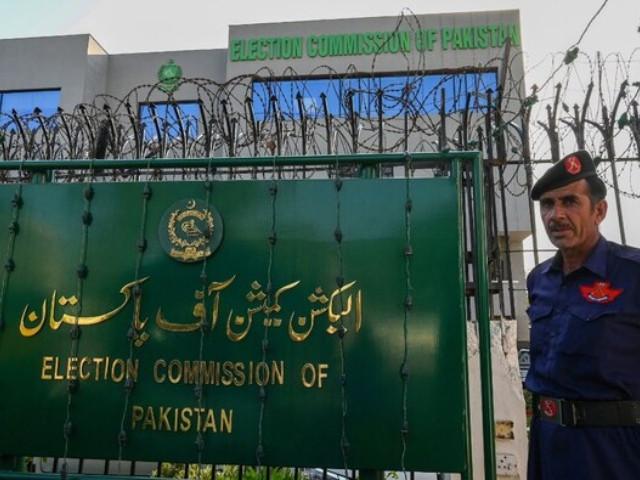Islamabad:
The Pakistan Electoral Commission (ECP) rejected on Saturday what it called “propaganda without foundation” that circulated in certain circles of the media in response to renewed criticism after the decision of the Constitutional Bank of the Supreme Court on the reserved seats.
The critic arose after the Constitutional Bank of the Supreme Court dismissed the request for review Sunita Ittehad (sic) of Pakistan Tehreek-E-Insaf (PTI).
This decision allowed the ruling coalition, led by the Pakistan Muslim League, Nawaz (PML-N), to emerge as the largest party and consolidate a two-thirds majority in the National Assembly.
Amid the changing political dynamics, the ECP has reiterated its constitutional role and defended the legality of its decisions, saying that the statements were contrary to the facts and intended to deceive the public.
In a statement, an ECP spokesman said that some circles in the media were involved in propaganda without foundation against the commission after the recent decision of the Superior Court. The spokesman said that the commission declares that this propaganda is contrary to the facts and is based on falsehoods.
The statement said such elements were unjustifiably pointing to the commission with criticism. He added that the historical facts and the numerous decisions of the Superior Judiciary provide irrefutable evidence that the Commission has always done its duties in the light of the Constitution and the Law. “The Supreme Court has repeatedly confirmed the position of the Electoral Commission,” he said.
Read more: PTI loses the judicial battle for the reserved seats
For example, in the Senate elections, said the spokesman, the position of the commission regarding the secret vote and the samples of hands procedures, which was totally in accordance with article 226 of the Constitution, was confirmed by a bank of the Supreme Court headed by the then judge of Ex-Cjp Gulzar Ahmed.
In the case of the election of disqualification in Daska, the official added, the decision of the commission was not only valid by the Bank of the Supreme Court, led by the then president of the Supreme Court Umar ATA Bandial, but also recognized as a constitutional action.
The Bank of the Supreme Court headed by the then president of the Supreme Court Qazi Fareez Isa had also supported the legal interpretation of the Commission on the elections within the PTI party, said the statement.
In addition, he said, in the case of the elimination of the All Pakistan Muslim League (APML), when the commission delighted APML for not carrying out intraparticle elections, and APML this decision was challenged by APML in the Supreme Court, the court confirmed the decision of the commission.
After this, said the spokesman, the commission eliminated several other parties that did not comply with the law, taking into account the decision of the Supreme Court. The Supreme Court also accepted the appeal of the commission regarding the electoral courts of Punjab, rejecting the decision of the Superior Court of Lahore and defending the position of the commission.
Also read: PM extends the olive branch to PTI in the middle of reserve seats
Similarly, in the recent case on reserved seats of the Sunita Ittehad Council, first the Superior Court of Peshawar and now the Constitutional Bank SC has confirmed the position of the commission as constitutional and legal.
“All these and many other judicial decisions are undeniable evidence that the Electoral Commission does not alter its decisions due to political pressure, public clamor or cheap popularity,” said the spokesman, adding that the ECP performs its duties only based on constitutional requirements, legal jurisdiction and evidence.
ECP said it would not be an exaggeration to say that the commission is a constitutional institution that is not intimidated by unscrupulous tactics of any political party or personal interest group. Therefore, he concluded, in no way is it appropriate to hold the commission for deficiencies and weaknesses.




